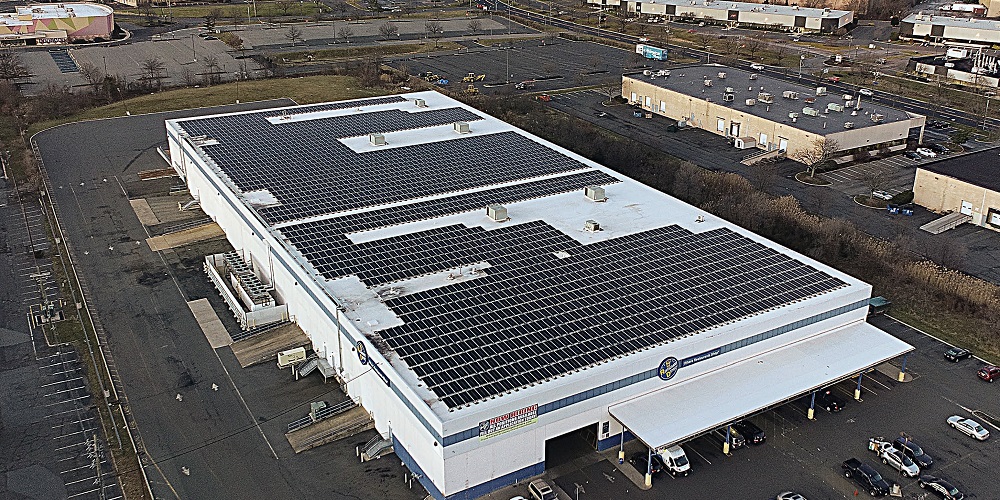Understanding Solar Incentives for Businesses

Did you know that solar energy is the most abundant renewable energy source on Earth? The sun generates over 10,000 times the global energy consumption, and solar energy systems have become increasingly efficient and cost-effective.
So, why aren't more businesses taking advantage of solar energy? One reason may be that many business owners are unaware of the solar incentives available. These make solar energy systems more affordable and can save your business money in the long run.
This article discusses a few of the solar incentives available to businesses and how they can expedite your return on investment.
What Are Solar Incentives?
Solar incentives are subsidies or tax breaks offered by government agencies and utilities to encourage businesses to install solar energy systems. These incentives help offset the cost of solar panel installation and make solar energy more affordable for your business. The incentives can be in the form of tax breaks, grants, loans, or rebates. The ones that your business is eligible for will depend on the size of your business and its location and type.
Common Solar Incentives for Businesses
Solar incentives typically fall into two categories: federal solar incentives and state solar incentives.
Federal Solar Incentives
Businesses installing solar energy systems can choose to receive tax breaks through the investment tax credit or the production tax credit.
Solar Investment Tax Credit (ITC)
The federal government provides a solar ITC for businesses that install a solar energy system. The ITC enables businesses to deduct a percentage of their solar energy system’s costs from their federal taxes. To receive the full tax credit benefit, you must install your solar energy system in the same year that you claim the deduction.
The ITC was scheduled to expire at the end of 2024 but was extended through 2034 by the Inflation Reduction Act of 2022. The credit is now 30% until the end of 2033 and includes projects completed in 2022. You must meet additional conditions for commercial projects that are one megawatt or higher to receive the full benefit of the tax incentive. The ITC will decrease over time, dropping to 22.5% in 2034, 15% in 2035, and discontinuing entirely in 2036.
Businesses that take advantage of the ITC can expect to see a significant return on their investment. The ITC is one of the most important solar incentives for businesses, and it provides a strong motive for companies to install solar energy systems sooner rather than later.
Production Tax Credit (PTC)
The PTC is a federal tax credit available to particular owners of solar energy systems, typically producers of wind energy and other alternative energy types. The PTC provides a tax credit for every dollar per kilowatt-hour (kWh) of solar electricity that the system produces. The PTC is currently worth $0.026 per kWh, but it adjusts annually with inflation.
Bonus Credits
If you're thinking of going solar for your business, you may be eligible for extra credits that can significantly reduce the cost of your project. If your solar energy system meets specific requirements, you can qualify for an additional 10% credit with the ITC or PTC.
For example, to qualify, 40% of the components in your system must be manufactured in the US, and/or the solar energy system must be located in an energy community, low-income community, or tribal land. With the ITC or PTC, commercial solar power projects can be eligible for a combined federal tax credit of up to 60%.
Accelerated Depreciation
Another federal solar incentive is accelerated depreciation. It enables businesses to depreciate the cost of their solar energy systems over a shorter period than the standard depreciation schedule. This can save your business money because you can deduct a more significant portion of the solar energy system's cost the year that it is installed.
The modified accelerated cost recovery system (MACRS) is the most common type of solar accelerated depreciation. It enables your business to depreciate its solar energy system over five years. MACRS also helps reduce the amount of taxes that you pay and expedite your solar project's return on investment.
State Solar Incentives
Many states also offer incentives to make solar power more affordable. These can be in the form of tax credits, rebates, or grants. The type of incentive and the incentive amount vary by state.
Solar Renewable Energy Credits (SRECs)
SRECs can help your business expedite its return on investment. If your business generates more solar energy than it needs, you can sell the excess energy to the utility company through SRECs. These credits can then be traded or sold to other businesses or entities that want to support renewable energy.
One SREC equals 1,000 kilowatt-hours (kWh) of solar energy generated. So, if your business generates 10,000 kWh of solar energy, it will have 10 SRECs that it can sell or trade.
Performance-Based Incentives (PBIs)
PBIs pay a per kilowatt-hour credit based on the amount of energy that your solar energy system generates. PBIs are available from utilities and state governments. The amount of the credit and the length of time that the credit is paid vary by utility or state program.
Maximize Your Solar Investment
As a business owner, you want to make smart investments that will save you money and improve your bottom line. Various solar incentives for businesses are available to help expedite your solar project's return on investment. The sooner you go solar, the sooner you can take advantage of these incentives at the highest rates. Get a solar energy system tailored specifically for your business to get the most out of your commercial solar investment.
At Geoscape Solar, we help businesses utilize solar energy for profit. Your business will become energy independent, be able to decrease utility costs, and leverage available solar incentives for a quick ROI.
To discover how installing solar energy on your property will increase your business profitability, contact one of our energy specialists!
